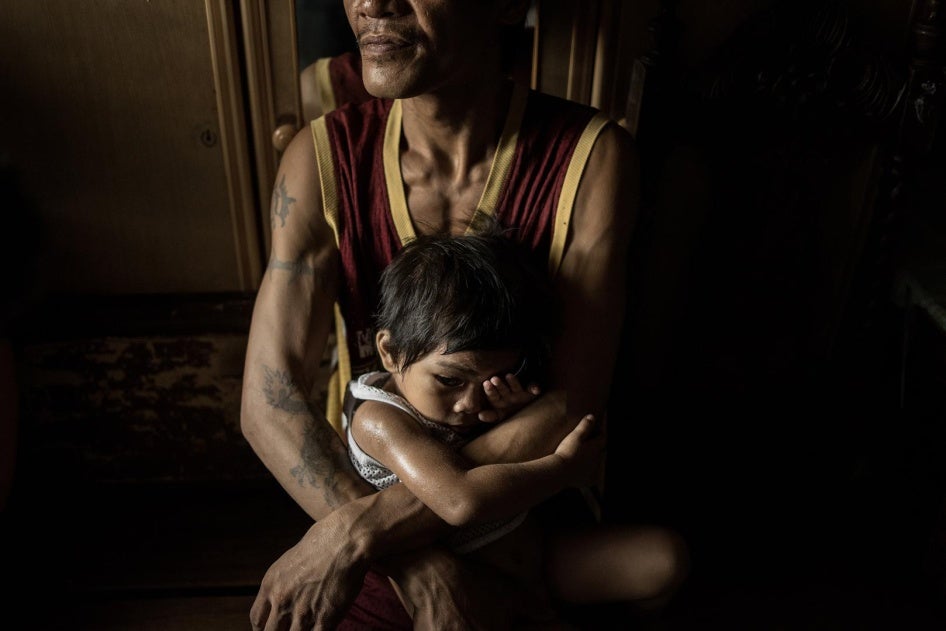The Philippine government of President Rodrigo Duterte reaped twin broadsides on Wednesday from both the European Parliament and the United Nations for its murderous “war on drugs” and moves to reinstate the death penalty.
The European Parliament issued a resolution castigating the Duterte government for its abusive “war on drugs” linked to killings by police and “unidentified gunmen” of more than 7,000 people since July last year. The resolution urged the European Union to “support the establishment at the UN Human Rights Council of an independent international investigation into unlawful killings and other violations by the Philippines in the context of President Duterte’s ‘war on drugs.’”
This criticism is well-justified. New Human Rights Watch research found that Philippines police have repeatedly carried out extrajudicial killings of drug suspects, and then falsely claimed self-defense. Masked gunmen taking part in killings appeared to be working closely with the police, casting doubt on government claims that most killings have been committed by vigilantes or rival drug gangs. The European Parliament also called for the immediate release of Senator Leila de Lima, who faces prosecution on politically motivated charges linked to her outspoken opposition to the drug war killings. The resolution urged the EU to “closely monitor the case against Senator de Lima.”
Philippine Police Killings in Duterte’s “War on Drugs”
Hours later, the UN special rapporteurs on extrajudicial executions and torture issued a statement calling on the Philippine government to reject lawmakers’ moves to bring back the death penalty. The two UN experts warned that reinstatement “will set the Philippines starkly against the global trend towards abolition” and violate the country’s obligations under international law. The statement warned the government that the draft bill making drug-related offenses eligible for the death penalty violated legal restrictions on its use “only for the most serious crimes, that is, those involving intentional killing. Drug related offences do not meet this threshold.”
The European Parliament and UN criticism of the Philippines reflect the growing international frustration and dismay at the Duterte government’s steamrolling of rule of law in pursuit of its abusive “war on drugs.”
And there may be a price to pay for the Philippines, too. Just last week, the European Trade Commissioner Cecilia Malstrom delivered a blunt warning to the Philippine government that its rights-trampling policies pose a threat to its tariff-free exports to the EU. More international pressure on the Duterte government is needed or the killings will continue.







